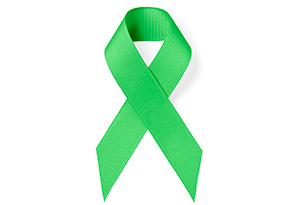The Vaccine That Could Save Your Life

Photo: Don Farrell/Getty Images
PAGE 2
Debra is one compelling reason why scientists believe they may be onto something big: After ten weekly injections of the lymphoma vaccine, more than half of the tumors surrounding her kidneys and other organs had disappeared. One year after her last injection, there was no evidence of disease at all, and three years later she remains in remission. Other patients have had similarly impressive results with the vaccine, and a new version of the drug is now being tested at the Icahn School of Medicine at Mount Sinai to see if it could in fact be a cure for certain types of lymphoma.
Vaccines' ability to lead to remission is still rare, but in many cases they seem to slow the progression of the disease. In a 93-patient study presented in June at the annual meeting of the American Society of Clinical Oncology, when people with inoperable pancreatic cancer received a combination of two vaccines, they survived, on average, 50 percent longer than those who didn't receive both vaccines, with some still alive more than a year after entering the trial. "Surviving that long with this type of cancer is virtually unheard of," says oncologist Drew Pardoll, MD, PhD, director of the cancer immunology program at the Sidney Kimmel Comprehensive Cancer Center at Johns Hopkins School of Medicine, where the vaccines were invented. "Until now, we expected people with inoperable pancreatic cancer to succumb quickly to the disease."
Of course, it's still too early to know the long-term benefits of the vaccines currently being tested, but doctors remain hopeful that some of the new drugs will earn FDA approval. "Immunotherapy has led to responses that have never been seen with chemotherapy in patients with advanced cancer," says Pardoll. And while increased survival is the ultimate goal, the vaccines have another appealing upshot: minimal side effects. Soreness at the injection site and short-term flulike symptoms pale in contrast to the collateral damage chemotherapy can cause. "Immunotherapy has been easy compared with everything else I've been through," says Judith Gaffney, 65, of Avon, Connecticut, who has participated in two vaccine trials after undergoing rounds of chemo when her pancreatic cancer metastasized to her lungs in 2011. "Not only has the vaccine helped buy me extra time but I'm well enough to enjoy it."
Cheryl Platzman Weinstock is a science writer who specializes in women's health issues.
More Health Advice
Vaccines' ability to lead to remission is still rare, but in many cases they seem to slow the progression of the disease. In a 93-patient study presented in June at the annual meeting of the American Society of Clinical Oncology, when people with inoperable pancreatic cancer received a combination of two vaccines, they survived, on average, 50 percent longer than those who didn't receive both vaccines, with some still alive more than a year after entering the trial. "Surviving that long with this type of cancer is virtually unheard of," says oncologist Drew Pardoll, MD, PhD, director of the cancer immunology program at the Sidney Kimmel Comprehensive Cancer Center at Johns Hopkins School of Medicine, where the vaccines were invented. "Until now, we expected people with inoperable pancreatic cancer to succumb quickly to the disease."
Of course, it's still too early to know the long-term benefits of the vaccines currently being tested, but doctors remain hopeful that some of the new drugs will earn FDA approval. "Immunotherapy has led to responses that have never been seen with chemotherapy in patients with advanced cancer," says Pardoll. And while increased survival is the ultimate goal, the vaccines have another appealing upshot: minimal side effects. Soreness at the injection site and short-term flulike symptoms pale in contrast to the collateral damage chemotherapy can cause. "Immunotherapy has been easy compared with everything else I've been through," says Judith Gaffney, 65, of Avon, Connecticut, who has participated in two vaccine trials after undergoing rounds of chemo when her pancreatic cancer metastasized to her lungs in 2011. "Not only has the vaccine helped buy me extra time but I'm well enough to enjoy it."
Cheryl Platzman Weinstock is a science writer who specializes in women's health issues.
More Health Advice



